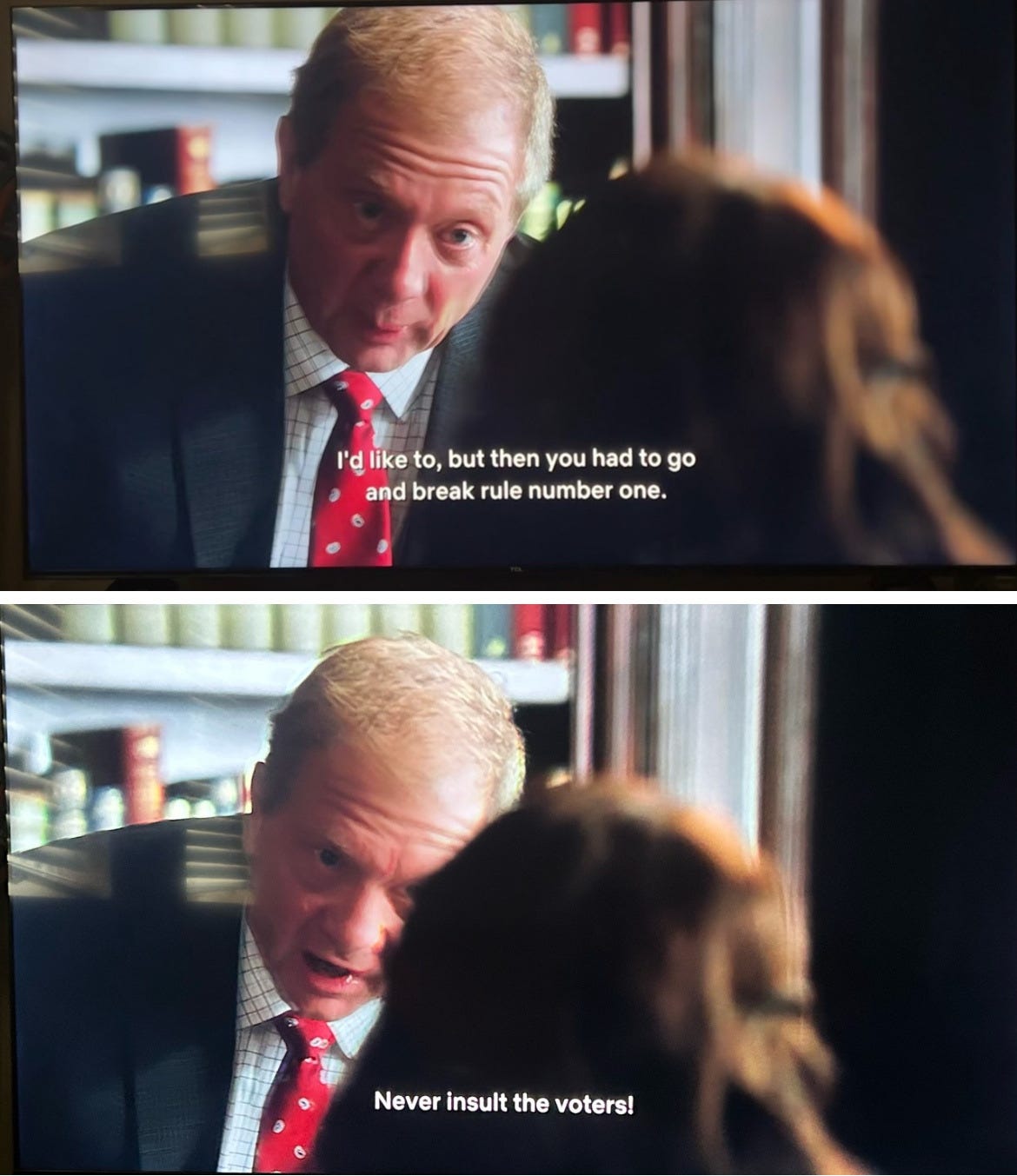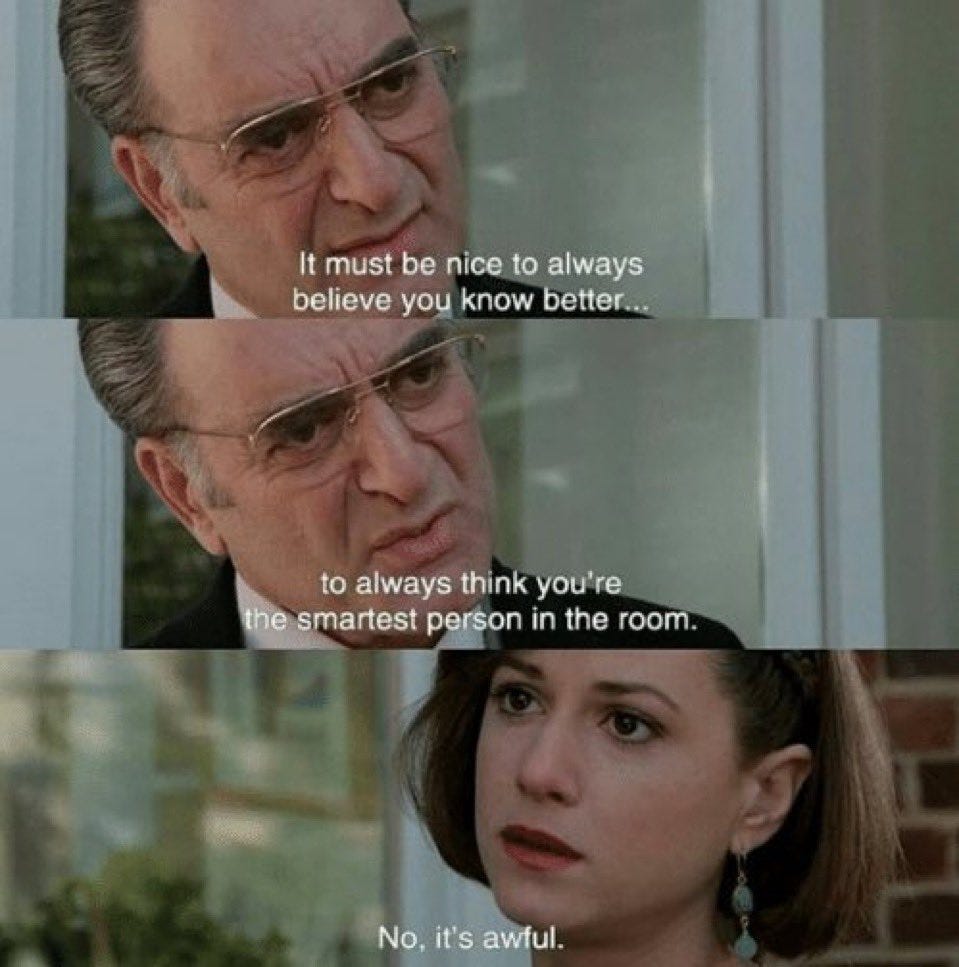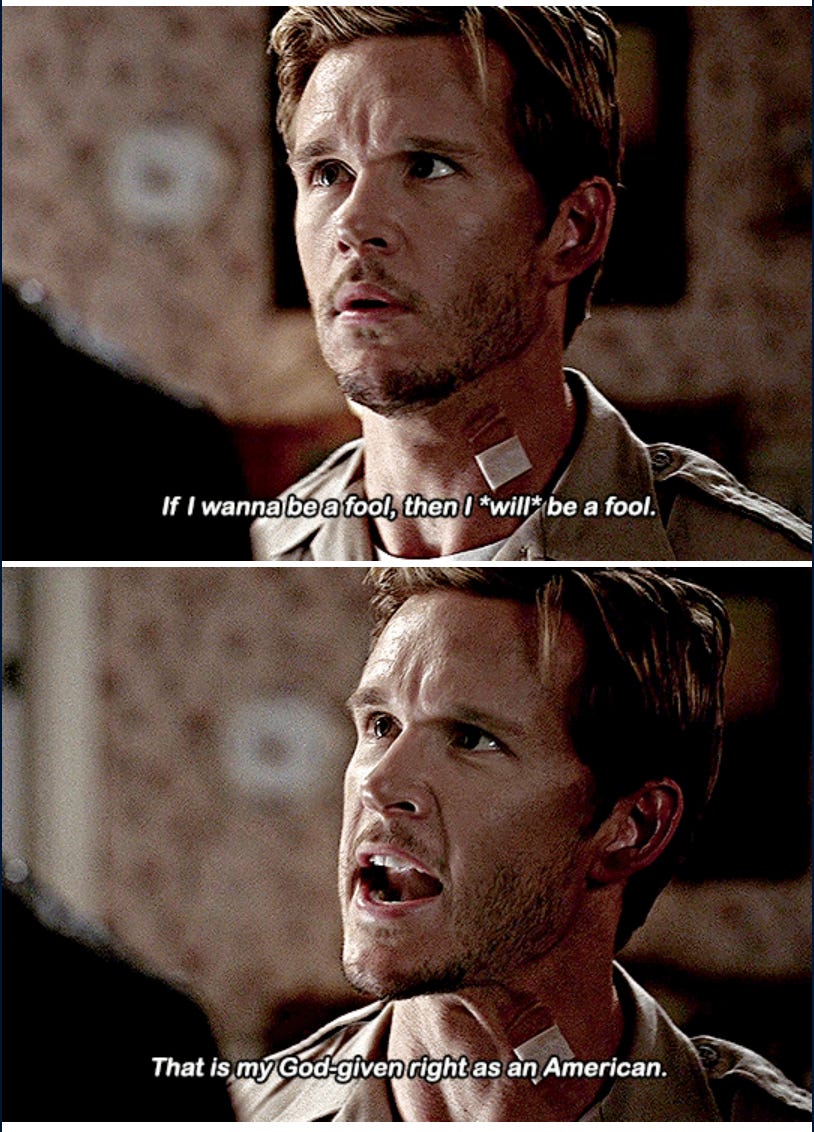Odds & Ends
You brought up Kavanaugh earlier, and to this day, I think if Dems had bit the bullet and just confirmed him without issue, the 2018 midterms would have gone even better for Dems. Purely electorally, everything about Kavanaugh hurt us as a party, and I'm already terrified that next year, Republicans will push for Clarence/Alito to retire in order to force another shitshow on us.
Agree/disagree?
Yeah, Kavanaugh was confirmed regardless of what Democrats did, but Joe Manchin voting for him (after Susan Collins declared her vote and ensured he was in regardless) saved his seat, and I think that Bill Nelson, Claire McCaskill, and Joe Donnelly should have probably voted for him as well since Nelson in particular lost in Florida by like 0.10% and it would have prevented Rick Scott derogatory from winning.
But, I think a lot of Senate Democrats just opposed Kavanaugh on principle, and I have to respect it. Have you ever seen Heidi Heitkamp’s explanation of her “No” vote? She represented North Dakota after she barely won in 2012, and she ended up losing by 11 points in 2018. She said if it were a political decision, she’d have voted yes, but she can’t get up in the morning and look at the life experience she’d had and say yes to Kavanaugh.
But yeah, you’re right, Kavanaugh’s confirmation did hurt Democrats. I lost the poll but there was one that said that the Kavanaugh decision spurred Republicans to get out and vote for the Republican candidate on the Senate level.
And yes, Republicans will push Thomas and/or Alito to retire, likely before midterms because I think Democrats will win the North Carolina Senate seat that’s currently held by Republican Thom Tillis, who’s retiring, so they’ll have less of a buffer.
Kind of a dumb question, but re: Jasmine Crockett and men, is there any way a female politician could reasonably cater to male voters?
Idk, I feel like a subset of male voters are so misogynistic that any female candidate would be an immediate no for them, and that includes progressives: those men just want Bernie. I can’t see them voting for a middle-aged candidate unless the woman was reasonably hot and married. Crockett and AOC are younger and are both attractive, but it’s their outspokenness that doesn’t appeal to those voters. I get that they’re annoying and actively contradict the party, but it’s not like college-aged men care about that.
I don’t think it’s fair for them to censor themselves for voters who would never respect them, let alone vote for them, you know? It feels like a lose-lose.
I mean, AOC does a much better job of appealing to men. She’s obviously progressive and outspoken but she’s a lot less petty and mean, like she isn’t ridiculing her coworkers’ appearances or mocking Republicans’ disabilities (and then blatantly lying about it) like Crockett is. Fair or not, there are a lot of negative feminine stereotypes associated with being catty, and it’s not great to lean into that as a public official that’s trying to become a national leader of the party.
And, natsec Dems (Elissa Slotkin, Abigail Spanberger, and Mikie Sherrill in particular who are all going to be statewide electeds by the end of this year), who are middle-aged women, kind of escape the gender penalty, especially since they’re not running for president.
I know people mocked Slotkin for her alpha messaging but the thing is, her tone is ridiculously straight up, cut the bullshit, no posturing at all, and I think that’s way less off-putting to people, including other women, than raising her voice and calling people fugly. Like, Slotkin pointed out that Trump is screwing over people economically, and maintained that most Michiganders, including people who voted for Trump) oppose ICE kidnapping hardworking, law-abiding residents off the street (idk about that but optimism about your constituents is probably good), but she’s extremely no-nonsense when she states things, she doesn’t appeal to pathos, she just lays out the facts and expects people to listen to her. The confidence is what appeals to voters, male and female, and it commands respect.
Also, it might be a lose-lose to require female politicians to censor themselves, but if they want to be national figures and party leaders and not just backbencher House Reps, there’s no choice. Life is about tradeoffs, and if you want the privileges of prominence and everything that comes with it, you have to toe the line, at least to a point. Yeah, it’s unfair that women of color are held to different standards than white men, but you can’t change reality until you accept reality. That’s one of longstanding mantras and I stand by it.
To understand how the Democratic Party works, invert the pyramid. Imagine a pyramid balancing precariously on its point, which is the presidential candidate.
Democrats who run for president have to build their own pyramids all by themselves. There is no coherent, larger structure that they can rely on. Unlike Republicans, they don’t simply have to assemble a campaign apparatus – they have to formulate ideas and a vision, too. Many Democratic fund-raisers join a campaign only after assessing how well it has done in assembling its pyramid of political, media and idea people.
There is no clearly identifiable funding base for Democratic policy organizations, and in the frantic campaign rush there is no time for patient, long-term development of new ideas or of new ways to sell old ideas. Campaigns don’t start thinking about a Democratic brand until halfway through the election year, by which time winning the daily news cycle takes precedence over building a consistent message. The closest that Democrats get to a brand is a catchy slogan.
Democrats choose this approach, I believe, because we are still hypnotized by Jack Kennedy, and the promise of a charismatic leader who can change America by the strength and style of his personality. The trouble is that every four years the party splits and rallies around several different individuals at once. Opponents in the primaries then exaggerate their differences and leave the public confused about what Democrats believe.
“A Party Inverted” by Bill Bradley (2005)
Me on November 6, 2024 after I’d spent the previous year informing everybody that Democrats would lose the 2024 election over immigration and inflation and that Sherrod Brown and Jon Tester would both lose their seats:
Politics Is for Power: How to Move Beyond Political Hobbyism, Take Action, and Make Real Change by Eitan Hersh
Do you think Kamala Harris was a good vice president on her own (as in, not comparing her to Trump and Pence bc she's obv better than them, but on her own?)
I don’t think it’s really possible to be a “good” vice-president, especially when you’re given unwinnable issues like immigration as a Democrat, and she definitely did everything she could and I was happy to vote for her for president.
Kamala’s only real mistakes during her 2024 presidential campaign were:
Not rebutting the stupid they/them ad like Bill Clinton and John Fetterman
(and Tumblr user Dhaaruni)pleaded with her to do because a candidate flip-flopping to a position that the electorate agrees with is much less damaging than saying nothing and hoping the issue stops existing. That’s why Zohran Mamdani’s 2020 support of “defund the police” didn’t kill his mayoral candidacy! He quietly disavowed it and maintained he wasn’t going to defund the police as mayor.Not putting any distance between her and Biden when they asked her on The View if she’d have done anything differently (“I’d have closed the border earlier and done more to combat inflation” was right there and voters quite frankly care more about the perception that candidates care about their grievances than the fact the president couldn’t actually just “turn off” inflation post-COVID)
Ignoring Future Forward imploring her to highlight Trump’s brainwormed economic policies making things super expensive and laser focus on cost-of-living instead of waffling about the sanctity of democracy in the lead-up to the election because unfortunately, the only people who care about democracy™ are people who’d never vote Republican in the first place. Also, the Harris campaign throwing FF under the bus in the NYT last month after David Shor went on Ezra Klein back in March and said the Harris campaigned ignored his recommendation to focus on the economy and stay away from democracy messaging was honestly so tacky, like I’m not blaming her personally for that but the entire Democratic party needs to clean house in terms of staffing.
Even so, the concept of linking health insurance to employment remained a potent one for Americans. In my own reporting, I’ve often spoken to people with private insurance who were resentful that others who did not work suddenly had free health coverage. They would point out that Medicaid coverage seemed better than what they got at work. And those people weren’t necessarily wrong: Medicaid only rarely charges deductibles or co-payments, whereas the average employer plan now has a nearly $2,000 deductible before it kicks in.
A few years after Obamacare passed, several Republican states began proposing adding a work requirement to the program. Most were blocked by the Biden administration or the courts. Still, they provided a road map for Congress to use when writing a national version.
Two states, Arkansas and Georgia, did manage to implement the program, although Arkansas’s ended in 2019.
“It gains traction and momentum because it reflects common sense,” said Asa Hutchinson, who implemented a Medicaid work requirement in Arkansas when he was governor. “Somebody who is able-bodied and receiving a public benefit, they ought to have a responsibility.”
“Why the G.O.P. Thinks You Should Have to Work for Your Health Care”







